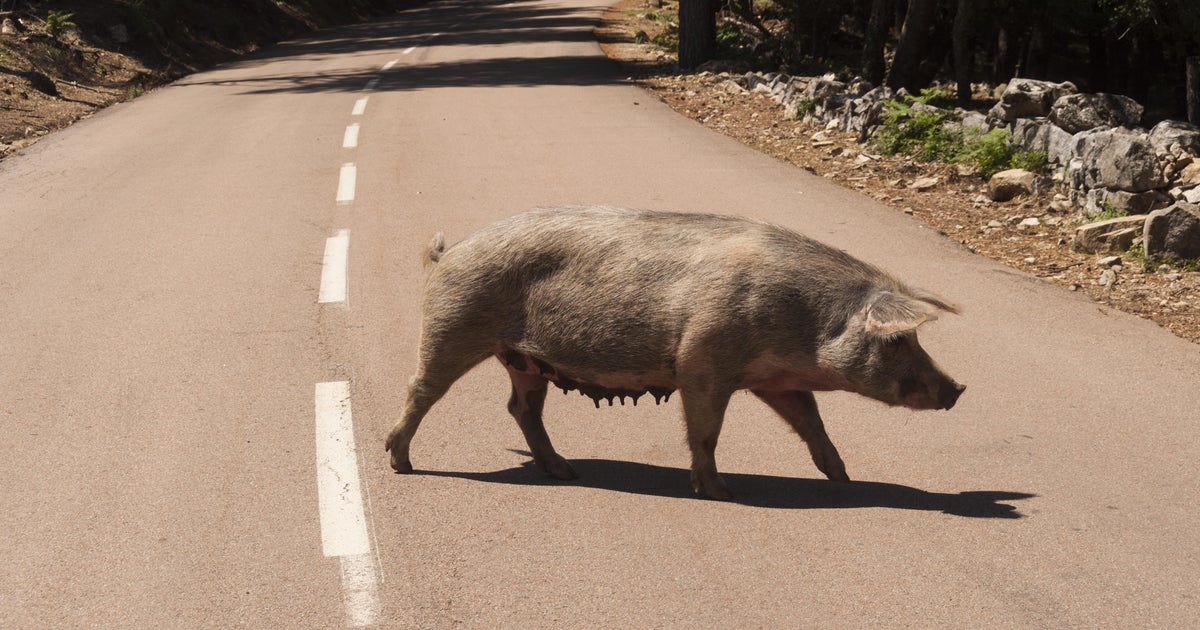CALAVERAS COUNTY – Two feral pigs were found in Calaveras County recently that were infected with a virus that can be lethal for pets.
The presence of a virus known as Peudorabies (PRV) was detected by the United States Department of Agriculture in samples taken from two feral pigs in Calaveras County, a spokesperson with the Calaveras Health and Human Services Agency said Thursday in a statement. Specifically, the samples were taken within a 10-mile radius of the town of Burson.
Manuel ROMARIS / Getty Images
The county says this is the first time that the virus, which is not a form of rabies, has been detected in the county. PRV is known to affect domestic and feral swine, cattle, dogs, cats, sheep, and goats and is often fatal to dogs and cats. It also poses reproductive problems for livestock, officials say.
PRV is primarily spread through direct animal-to-animal (nose-to-nose) contact between an infected pig and a noninfected pig or other susceptible species. It may also be spread by breeding and can spread from if present on things like boots, clothing, feed, trucks, and equipment.
Transmission to dogs and cats typically occurs through contact, bite wounds, or the consumption of raw feral pig meat.
The pigs found with the virus were destroyed.
Feral pigs continue to be a multibillion-dollar plague on farmers, wildlife and the environment. According to a 2022 article from the AP, despite being wiped out in 11 of the 41 states where they were reported in 2014 or 2015, an estimated 6 million to 9 million feral swine still ravage the landscape nationwide.
Feral pigs tear up planted fields, wallowing out huge bare depressions. They out-eat deer and turkeys — and also eat turkey eggs and even fawns. They carry parasites and disease and pollute streams and rivers with their feces. Total U.S. damages are estimated at a minimum $2.5 billion a year.
Thanks for reading CBS NEWS.
Create your free account or log in
for more features.








